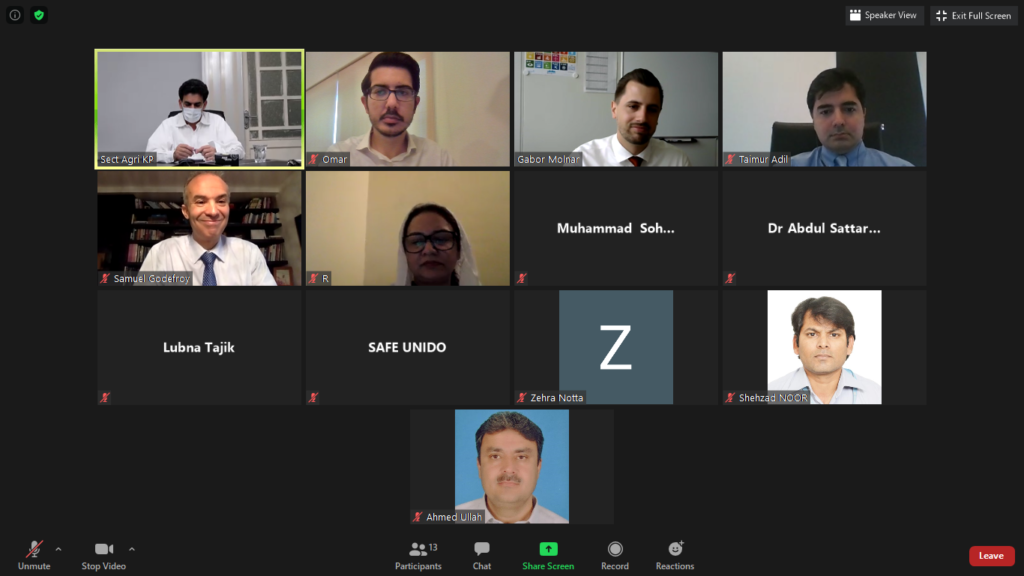July 8-9, 2020: Despite COVID-19 challenges PAFAID has successfully concluded two provincial validation workshops for cattle meat value chain in Khyber Pakhtunkhwa (KP) and apple value chain in Baluchistan.
Value chain roadmaps, technical assessments, feasibility and gender studies developed by UNIDO experts in consultation with relevant stakeholders. These were shared and presented to stakeholders from the two provinces. The studies were a result of field visits and extensive consultative process conducted by UNIDO. Feedback from stakeholders from the private sector, progressive farmers, Agriculture Departments, academia and relevant associations was incorporated into the different studies. The documents were validated and finalized in consultation with the provincial agriculture departments and food authorities to ensure the credibility and reliability of the information and ownership.
Speaking on the occasion, Mr. Muhammad Israr, Secretary Agriculture Department, KP said “The Govt. of KP appreciates UNIDO’s and Japan’s contribution towards development of the Livestock sector in KP and the studies conducted by UNIDO will benefit all involved in the cattle meat value chain. He further emphasized the importance of bringing together all stakeholders to achieve the objective of the project which will not only improve the rural livelihoods but also provide access to safe and quality food.”
Mr. Masoud Ahmed Baloch, Director General, Agriculture Extension Department, Baluchistan said “Livelihoods of 70% of people of Balochistan is linked to agriculture and apples is the most cultivated and produced fruit in the province. He supported the idea of introducing value addition techniques, packaging and transportation within the value chain”
Ms. Nadia Aftab, UNIDO Country Representative, said “Under PAFAID, UNIDO will support relevant governmental bodies to offer adequate services to the industry and ensure the sustainability and possible upscale of best practices. She thanked the provincial agricultural departments and authorities for their continued support and wished for close coordination among all stakeholders for the successful implementation of the initiative”.
